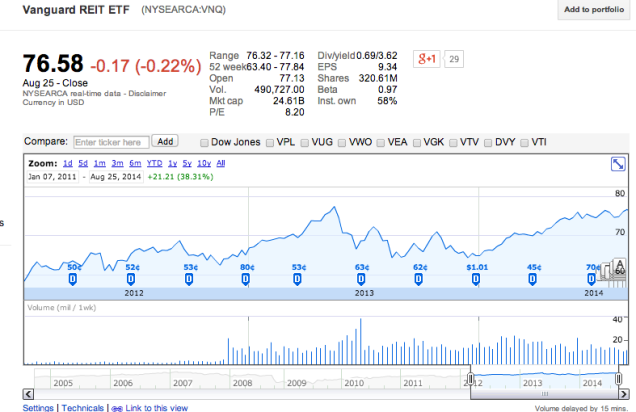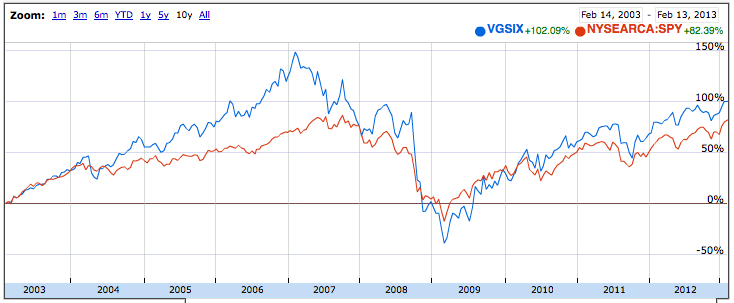REITs v Estate Investing
Post on: 9 Июнь, 2015 No Comment

Many investors recognize that its important to diversify their investments, and include different types of assets. As a result, the idea of including real estate in an investment portfolio comes up.
For the investor, there are two main ways to include real estate in a portfolio: REITs and direct investment in real estate.
What are REITs?
Real Estate Investment Trusts (REITs) are traded like stocks on the market. They are collections of real estate related assets. They might include residential, commercial, industrial or agriculture real estate. Some REITs include storage units, or mortgages, or malls, or a mix of investments.
The idea is that you have exposure to real estate without actually owning, directly, the property. (The discussion about whether REITs actually represent owning real estate, rather than just owning a stock, is one for another day.)
For those who want exposure to real estate, but dont have the capital for direct investment, REITs can be a reasonable choice for a financial plan. There are REITs that provide you with the ability to diversify across property type, geographic location, and more. Plus, there are REITs that pay dividends, so they can included in income portfolios.
Liquidity can also be an issue. Because traded REITs (make sure you know the difference between traded and non-traded REITs) can be bought and sold like stocks, they are fairly liquid unlike direct real estate, which can be difficult to sell quickly if you decide you need to. However, at the same time you do run the risk of losing quite a bit of money if the manager makes a poor decision, or if some of whats in the REIT tanks.
The other aspect of REITs over owning real estate is taxes. Based upon the way they are taxed, REITs are best suited to be placed in retirement accounts. Though there is nothing preventing you from investing in REITs in taxable accounts.
Directly Owning Real Estate

Direct investment in real estate does have some advantages, though. If you can put down a decent down payment, and you have the ability to manage the real estate effectively (or hire someone else to manage it), direct rental property can be a great asset. It is usually best to think of owning a rental property as an investment and business. Its not truly passive compared to owning a REIT, but the amount of direct work can be minimized.
When you own a property, you have more control over of the investment. Additionally, you have something physical to fall back on. Even if the market tanks, and the property loses financial value, the fact that you still have a tangible asset that you could live in (or on in the case of farmland), or use in some way, remains. As long as the property has tenants, you have a monthly income.
On the down side, though, directly owning real estate means you are responsible for it. You are in charge of addressing tenant problems. and you have to deal with trying to collect rent, and choose tenants that arent going to destroy your property or rip you off. (One way to avoid this is to invest in land that is just sitting there, and that you dont expect income from right away.)
Which is Better?
Investing in REITs and direct investment in real estate both come with advantages and disadvantages. In the end you have to weigh the options and decide which better fits your style. Some investors prefer a mix of REITs and directly owned real estate. Others prefer one type over the other, for whatever reasons. Before you invest, though, make sure you know what you are doing, and understand the risks.














